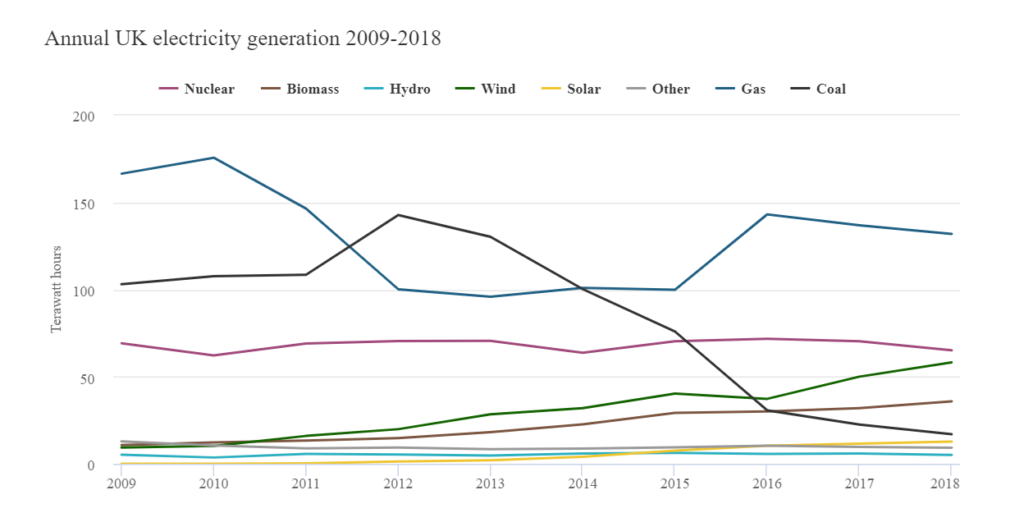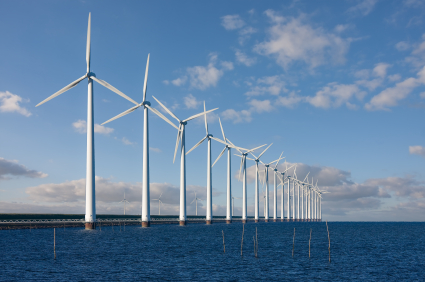Renewable Generation Reaches Record High in 2018
Over the past year, output from renewable sources rose to another record high, generating an estimated 33% of the UK total electricity in 2018. In combination with nuclear, low-carbon sources contributed 53% of UK generation last year. The share from fossil fuels decreased to its lowest ever, according to a newly-released report from think-tank Carbon Brief.
Although both the population and economy have grown, emissions were down because of lower electricity use per capita, and higher utilisation of renewables. These contributions have each helped avoid around 40Mt of annual UK CO2 emissions.
Simon Evans, policy editor at Carbon Brief, told The Guardian newspaper, “It could be a combination of more efficient appliances, energy-saving lightbulbs and, more recently, LEDs. Then there’s supermarkets installing better fridges, industry using more efficient pumps. Across all of those businesses, efficiency will have been going up. And of course there’s the changing nature of industry in the UK.”
The hike in renewable energy output in 2018, which includes biomass, hydropower, solar, and wind, went up from 29% a year ago, and has grown significantly after accounting for only 6.7% of the country’s power generation in 2009.

The capacity of offshore windfarms nearly doubled over the course of 2018, with more set to open this year. Solar generation increased by 11%, reaching 13TWh in 2018 (yellow in the chart, above).
Biomass generation also increased by 13% in 2018 to 36TWh. This was due to the former coal plant at Lynemouth in Northumberland re-opening to run on imported wood pellets and Drax in Yorkshire converting a fourth unit to burn the fuel.
The Climate Change Committee recently recommended that the UK should “move away” from large-scale biomass burning over time. Subsidies for biomass burning at Drax, Lynemouth and other sites will come to an end in 2027.
Meanwhile, the combined share of UK electricity generation from fossil fuels fell to 46% in 2018, its lowest level ever. This was primarily due to another 25% fall in coal, which looks unlikely to make a comeback as coal plants are reaching the end of their lifespan and are supposed to be phased out by 2025.
All over the world renewables have been on a roll, producing more electricity and reducing emissions, while providing power at acceptable market rates. Economic forces seem to be pushing nations away from the most polluting sources of power, as renewables take over more generation share each year.




